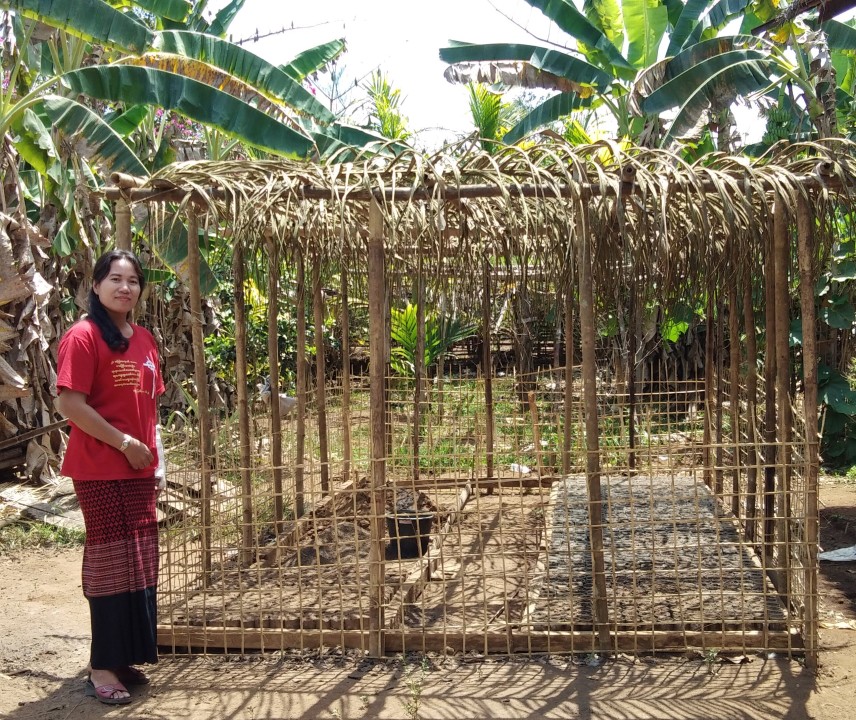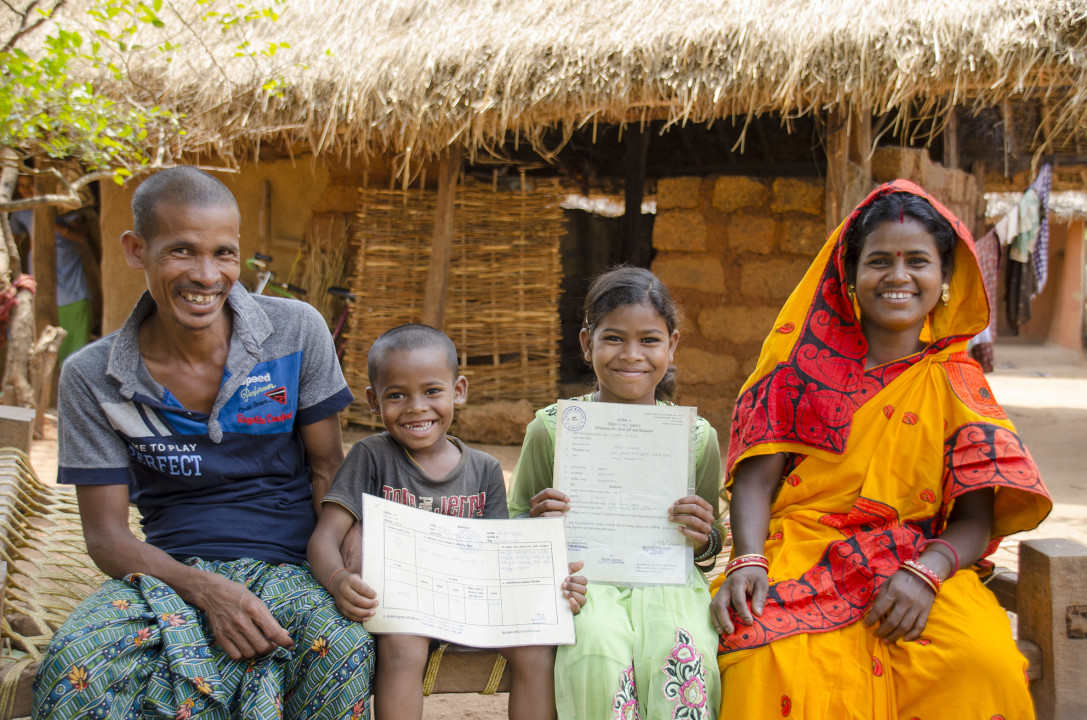Our Mission
Landesa champions and works to secure land rights for millions of the world’s poorest, mostly rural women and men to provide opportunity and promote social justice. We envision a world free of poverty. We are committed to a future in which all women and men who depend on land for their livelihoods have secure, legal land rights – one of the most powerful tools for lifting oneself, one’s family and one’s community out of poverty.
Our Impact
almost 7 years ago — Tanintharyi Region, Myanmar

Daw Khin Khin Phyu Nyein is a Mon ethnic woman who is also the secretary of the newly formed Community Forest Management Committee in Mile 60 village. When her village was displaced by conflict to an area three miles away, none of the villagers were aware that the new area was demarcated as a reserve forest. The villagers had been farming in the area, and became worried that they may be displaced yet again. Following discussions with the Forest Department, the village house plots were re-categorized as village land, and the farms have been protected by a Community Forest Certificate. This certificate protects the farmers and their lands, giving them rights to practice agroforestry and also responsibilities to protect the forest against further degradation. After getting the Community Forest Certificate, Daw Khin Khin Phyu Nyein expressed her feeling that “We always had to worry about our farms – whether our farms would be removed by the government or if we would be sued by Forest Department for trespassing. Now, I am confident about my farm and dare to announce to anyone that this is my farm and that these are crops from my farm. As I have joined some organic agricultural training organized by Landesa partners, I imagine that in the future my farm will be prosperous with organic crops and handmade nutrients for my family.” In the beginning she was unsure about how helpful the Forest Department would be, and whether they would ever get a community forest certificate. Now she is happy that her land is recognized and protected. Daw Khin Khin Phyu Nyein has a nursery in which she is growing acacia mangium trees, which will help to increase her family income and conserve the forest. Her family has planted 2,000 seedlings for the upcoming growing season. As a woman on the community forest management committee, Daw Khin Khin Phyu Nyein has also gained confidence to take a leadership role beyond the committee and to encourage other women in leadership as well.
about 7 years ago — Odisha, India

Indira, a bright and vivacious 32-year-old, is quick to smile, even as she chases the family’s herd of goats around their land plot in Kalada, a remote village in the Indian state of Odisha. The goats number in the dozens, ranging across the homestead plot in search of grazing fodder or a spot in the shade to escape the intense afternoon sun. Indira and her husband, Anirudha, have been smallholder farmers for almost a decade, since they received title to a plot of forest land in Odisha’s Dhenkanal district. Before they were landowners, Indira recalls how she and her husband struggled to feed themselves. “We did not have a record (of land rights), and agriculture was miserable,” she says. “There was a scarcity of food.” The land title was a necessary first step toward stability and security. In the rich soil on their plot of about 80 decimals (less than one acre), Indira and Anirudha began to grow vegetables and rice paddy. “The land is very fertile … ideal for vegetable cultivation,” Indira says. “Seasons do not matter. … Now we have plenty of food throughout the year.” Soon after receiving a title to the microplot, the couple received title to a plot of homestead land. The homestead secured their proof of residency, another important step in elevating their status. In Odisha and elsewhere in India, a land title enables rural families to access government services to support farmers. Indira’s status as a landholder made her eligible for a state assistance program to promote animal husbandry. This livelihood program, supported by Landesa, helps Indira and families like hers to make the best use of their land. With a small government loan of 5,000 rupees, Indira purchased five goats. That modest investment has had a transformational effect on their lives. Today, Indira estimates that she earns as much as 120,000 rupees (about $1,700 USD) per year rearing goats – a tidy sum in an area where daily wages are often about 150-200 rupees ($2-$3 USD). Not only do the goats provide Indira and her family with a significant source of income, they’ve also helped them expand their farm. Indira recently sold six of her goats, and is using the proceeds to purchase another quarter-acre of land. The couple is cultivating rice on the new land, allowing them to further supplement their income. As Indira and Anirudha’s lives have improved in the years since receiving their land title, so too have their children flourished. Their daughter, Mamali, now 10, was just a baby when her parents received their initial land allocation. Their son, Chandran, now 6, has never known landlessness. Thanks to the family’s residency status, both Mamali and Chandran are attending school. The yields from the land and profits from their goatherd mean that they never want for food. For Indira and her family, it’s another important step on their journey – one that means her children might never experience the hardships of their parents.